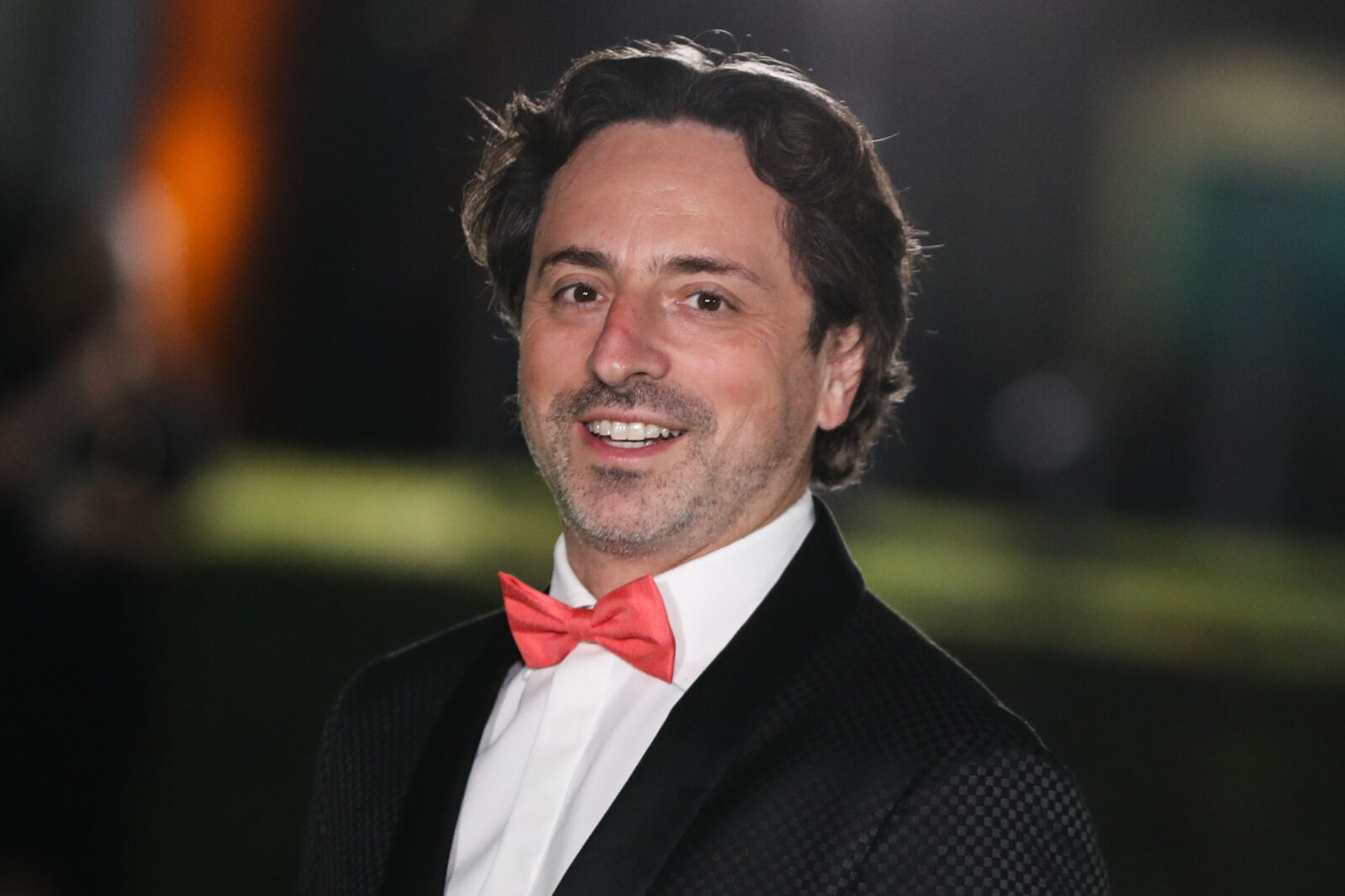- Home
- Billionaires
- Investing Newsletters
- 193CC 1000
- Article Layout 2
- Article Layout 3
- Article Layout 4
- Article Layout 5
- Article Layout 6
- Article Layout 7
- Article Layout 8
- Article Layout 9
- Article Layout 10
- Article Layout 11
- Article Layout 12
- Article Layout 13
- Article Layout 14
- Article Sidebar
- Post Format
- pages
- Archive Layouts
- Post Gallery
- Post Video Background
- Post Review
- Sponsored Post
- Leadership
- Business
- Money
- Small Business
- Innovation
- Shop
Recent Posts
Sergey Brin: The Innovator Who Helped Shape the Digital Age

Sergey Brin, co-founder of Google and one of the pivotal figures in the development of the modern internet, stands as a symbol of how vision, intellect, and bold innovation can redefine the world. Born on August 21, 1973, in Moscow, Russia, Brin’s story began in a time and place marked by political and social repression. His family, being Jewish, faced systemic discrimination under Soviet rule, particularly his father, who was barred from pursuing his preferred field of physics. In 1979, seeking a better life and greater freedom, the Brin family immigrated to the United States, settling in Maryland. This move would be instrumental in shaping the course of Sergey Brin’s future, as it provided him with the environment and resources necessary to thrive intellectually and creatively.
From a young age, Brin showed a strong aptitude for mathematics and computers. His father, a mathematics professor, and his mother, a researcher at NASA, encouraged his academic pursuits. Brin attended the University of Maryland, where he earned his bachelor’s degree in mathematics and computer science. Eager to dive deeper into technology and research, he continued his studies at Stanford University, enrolling in a Ph.D. program in computer science. It was at Stanford that he met Larry Page, a fellow Ph.D. student who shared similar interests in data mining and internet technologies. This partnership would become one of the most significant in tech history.
Together, Brin and Page began working on a project to improve how information was retrieved from the internet. At the time, search engines were basic and often ineffective. The pair developed a revolutionary algorithm called PageRank, which evaluated the relevance of web pages based on the number and quality of links pointing to them. This approach vastly improved the accuracy and usefulness of search results. Their search engine project, initially called BackRub, soon evolved into what the world now knows as Google. In 1998, they officially founded Google Inc. in a friend’s garage in Menlo Park, California, with Brin serving as co-founder and key technical lead.
Google quickly outpaced its competitors with its clean interface, lightning-fast results, and unparalleled relevance. Brin was instrumental in developing the company’s technological infrastructure and early innovations. He focused on scalability, data management, and user-centric design, helping to shape Google into a product that people trusted and relied upon daily. As Google expanded beyond search into products like Gmail, Google Maps, and YouTube, Brin continued to advocate for the use of cutting-edge technology to solve complex problems and improve lives. His engineering mind and risk-taking attitude drove the company into new frontiers.
In 2004, Google went public, instantly turning Brin and Page into billionaires. But wealth did not slow down Brin’s ambition. Alongside Page, he helped launch Google X (now X), a semi-secret lab focused on moonshot projects—radical ideas that could potentially transform the world. Brin was particularly involved in projects like Google Glass, self-driving cars, and smart contact lenses. These initiatives reflected his deep interest in wearable technology, artificial intelligence, and the intersection of humans and machines. Though not all of these projects were commercially successful, they demonstrated Brin’s willingness to explore uncharted territory and take risks in pursuit of progress.
In 2015, as Google grew into a complex ecosystem of businesses and products, Brin and Page restructured the company into Alphabet Inc., a holding company designed to separate core Google functions from its more experimental ventures. Brin became president of Alphabet, allowing him to focus on innovation and long-term vision. While Larry Page managed the overall company strategy, Brin championed breakthrough technologies and supported research across Alphabet’s subsidiaries. His curiosity and drive to push boundaries remained central to the company’s culture.
Despite his significant public influence, Sergey Brin has always maintained a relatively low personal profile. Known for his casual demeanor, curiosity, and playful nature, he often appeared at company events in rollerblades or participated in adventurous pursuits like trapeze and kiteboarding. He married biotech analyst Anne Wojcicki in 2007, and the couple had two children before divorcing in 2015. Brin has also been involved in philanthropic efforts, particularly through the Brin Wojcicki Foundation. He has donated generously to causes such as Parkinson’s disease research—a disease his mother suffers from and to which he has a genetic predisposition—as well as education and environmental sustainability.
In 2019, Brin stepped down from his executive role at Alphabet, though he remains a board member and major shareholder. His departure marked the end of an era, but not of his influence. His work laid the groundwork for technologies that continue to shape the way we communicate, learn, and interact with the digital world. He remains engaged in private ventures and continues to support scientific research and humanitarian initiatives. While he is less publicly visible today, his legacy lives on in every Google search, every Android device, and every innovation spurred by the companies he helped build.
Sergey Brin’s story is one of genius, courage, and enduring impact. He turned a research project into one of the most powerful companies in history and in doing so, altered how people access and use information around the globe. He is not just a tech innovator but a symbol of what is possible when intellect meets vision and is backed by the freedom to explore and build. From an immigrant boy in a new country to one of the architects of the digital age, Brin’s journey is a testament to the transformative power of technology, education, and determination.
- AI ethics
- Alphabet
- Alphabet restructuring
- Anne Wojcicki
- Artificial Intelligence
- Billionaire
- Brin Wojcicki Foundation
- California digital revolution
- Clean Technology
- cloud computing
- computational thinking
- Computer Science
- data mining
- Engineering Innovation
- Genetics
- gmail
- Google co-founder
- Google Glass
- Google Maps
- Google X
- immigrant
- Innovation
- internet pioneer
- Larry Page
- low
- machine learning
- Menlo Park
- modern inventor
- moonshot projects
- PageRank
- Parkinson's research
- Philanthropist
- private investor
- profile
- Russian-American
- search algorithm
- search engine
- self-driving cars
- Sergey Brin
- Silicon Valley biotech philanthropy
- Stanford University
- Success
- Tech
- tech entrepreneur
- tech visionary
- Technology
- technology leadership
- Trapeze enthusiast
- Venture Capital
- wearable
- X lab
- YouTube
Recent Posts
Categories
- 193 Countries Consortium Partner1
- 193cc Digital Assets2
- 5G1
- Aerospace & Defense48
- AI37
- Arts3
- Banking & Insurance11
- Big Data3
- Billionaires1,506
- Boats & Planes1
- Business332
- Careers13
- Cars & Bikes79
- CEO Network1
- CFO Network17
- CHRO Network1
- CIO Network1
- Cloud10
- CMO Network18
- Commercial Real Estate7
- Consultant1
- Consumer Tech194
- CxO1
- Cybersecurity73
- Dining1
- Diversity, Equity & Inclusion4
- Education7
- Energy8
- Enterprise Tech29
- Events11
- Fintech1
- Food & Drink2
- Franchises1
- Freelance1
- Future Of Work2
- Games149
- GIG1
- Healthcare79
- Hollywood & Entertainment203
- Houses1
- India’s 1000 Richest1
- Innovation46
- Investing2
- Investing Newsletters4
- Leadership65
- Lifestyle11
- Manufacturing1
- Markets20
- Media327
- Mobile phone1
- Money13
- Personal Finance2
- Policy569
- Real Estate1
- Research6
- Retail1
- Retirement1
- Small Business1
- SportsMoney42
- Style & Beauty1
- Success Income1
- Taxes2
- Travel10
- Uncategorized15
- Vices1
- Watches & Jewelry2
- world's billionaires1,475
- Worlds Richest Self-Made Women2
Related Articles
Francis Choi: The Toy Tycoon Behind a Billion-Dollar Empire
Francis Choi Chee-ming, often referred to as Hong Kong’s “King of Toys,”...
By 193cc World's BillionairesJune 6, 2025Francine von Finck and the Legacy of a Discreet Fortune
Francine von Finck, a name that commands respect in elite business circles,...
By 193cc World's BillionairesJune 6, 2025The Life and Legacy of Stefano Pessina
Stefano Pessina, one of the most influential figures in the global pharmaceutical...
By 193cc World's BillionairesJune 6, 2025John Morris: A Life of Vision, Growth, and Legacy
John Morris, the founder of Bass Pro Shops, is an iconic figure...
By 193cc World's BillionairesJune 6, 2025















Leave a comment